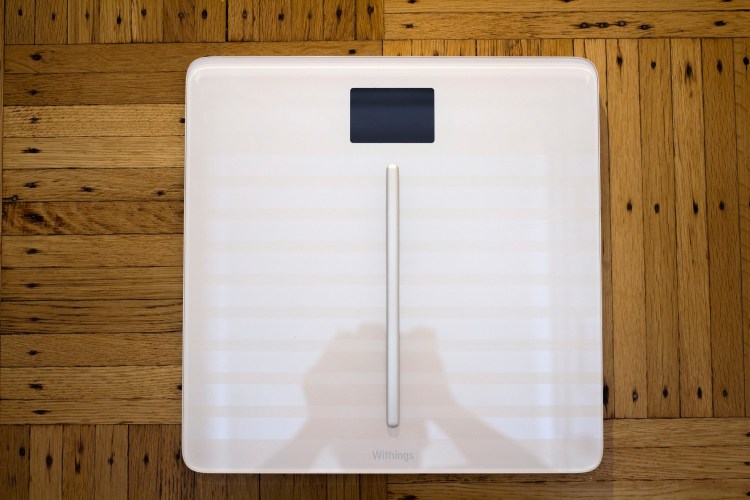When I first told my girlfriend that I’d decided to buy a $150 smart scale, she laughed at me.
“Can’t you get a scale for like, $10?” she asked.
I sure could. A quick Amazon search today reveals plenty of sleek scales, many priced around a modest $20 and all probably suited to helping me track how much (or little) weight I may (or may not) lose over time.
She had a good point. And so, like any rational person, I doubled down and ordered Withings‘ fanciest scale: the Smart Body Analyzer. It tracks my weight, BMI, fat mass, heart rate, the air quality in my bedroom, and it tells me the weather. It’s suuuper fancy.
And for a while, it motivated me to get fit (fit being a relative term), until I changed apartments, the batteries died, and I abandoned it under my bedside table indefinitely. It sat there for months, gathering a sad coat of dust.
Then, a couple of weeks ago, I felt motivated to give the scale another try and checked what sort of batteries it requires (four AAAs). I resolved to buy them that week, didn’t, and then last week Withings contacted VentureBeat with an offer to review “the most advanced device” it’s ever made: a pricier, fancier scale. A shiny new thing! What a series of events! I said yes, and here it is sitting next to my bed.
Withings’ new scale is called the Body Cardio. It costs $180, and it does just about everything my scale already did, plus it can measure your pulse wave velocity — a metric that I truly do not understand, but which is apparently “a key indicator of cardiac health and associated with hypertension and risks of cardiovascular incidents,” according to Withings’ press release.
And so I used the scale last week — the same week I decided to really get my diet together and start exercising a bit more, but for real this time.
My first weigh-in was disappointing; the scale’s display might as well have read “lazy millennial” (I hated writing that just as much as you hated reading it).
A few days later, however, when I weighed in after a one-time-only Soul Cycle thrill ride, I realized that I’d already lost a few pounds, and I felt motivated. And another day later, when I saw a string of progress indicators inside Withings’ accompanying mobile app, I felt that familiar little push to eat a bit healthier and exercise more.
In that way, Withings’ smart scales are the gadget equivalent of hiring a personal trainer. Both are costly mechanisms for improving your health, both carry a sort of elitist vibe, and neither is purely necessary because exercise is free, and laziness is a function of privilege. But that’s not a good enough reason to write off Withings.
Now that the company’s Body Cardio is out, I’m not going to buy it. The scale I already own does almost everything Withings’ new scale can do, in addition to the one random thing it can’t: measure air quality.
But if I didn’t already own that scale, reviewing Withings’ latest scale could have motivated me to buy one. For some people, and surely I cannot speak for everyone, scales are an excellent motivator, and the smart scale category somehow feels more advanced and mature than the bumbling world of wearables. That’s why I can certainly recommend Body Cardio if you’re looking for a connected scale with heart health features (the features I lament not really paying much attention to).
And if that niche pitch doesn’t woo you, here are a few other options: You can buy a $20 scale and manually enter your weight into Withings’ free app — maybe a safe way to start — or you could buy one of Withings’ slightly cheaper connected scales, which now start at $130. If you’re okay with outsourcing your motivation, I think it’s worth the price.
In fact, after I send the Cardio back to Withings, I may even go pick up some batteries.
Update June 15: Withings is no longer selling its Smart Body Analyzer, but you can still find it (for now) on Amazon.


